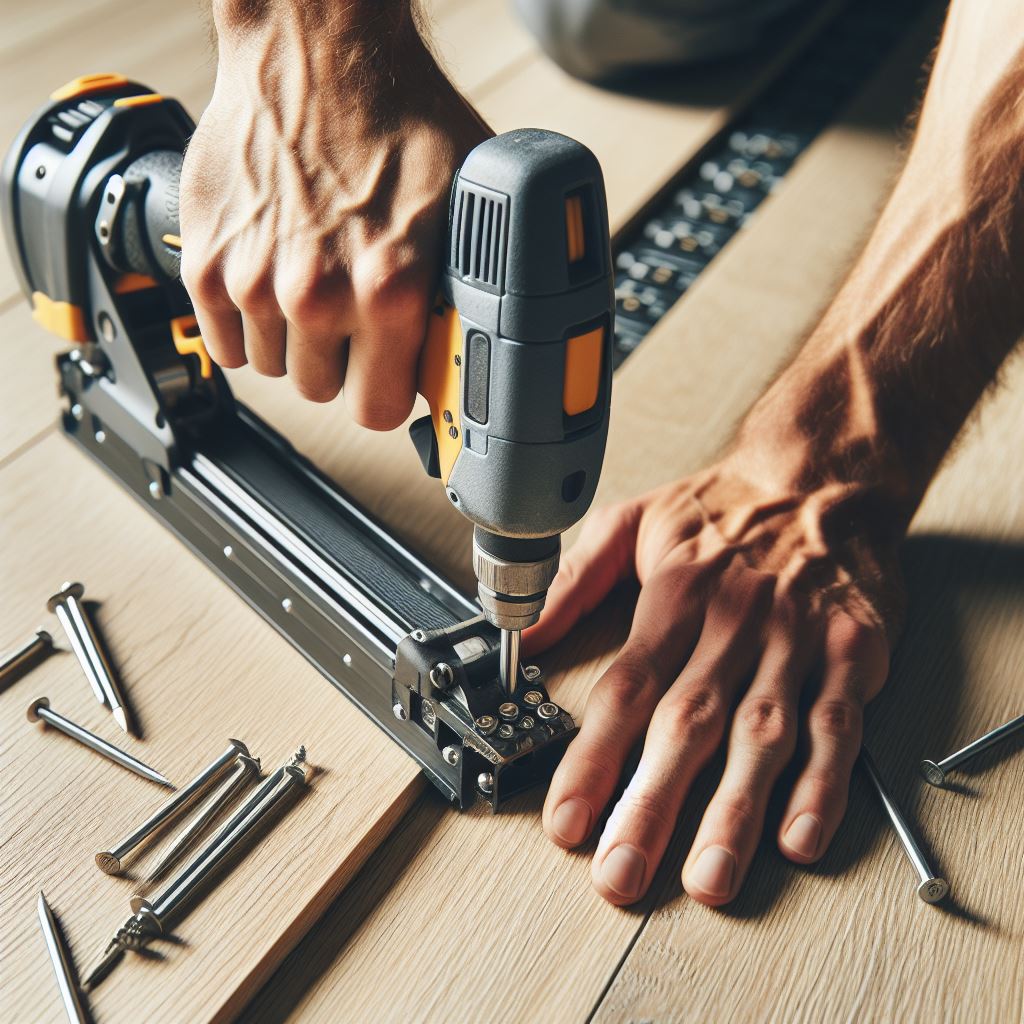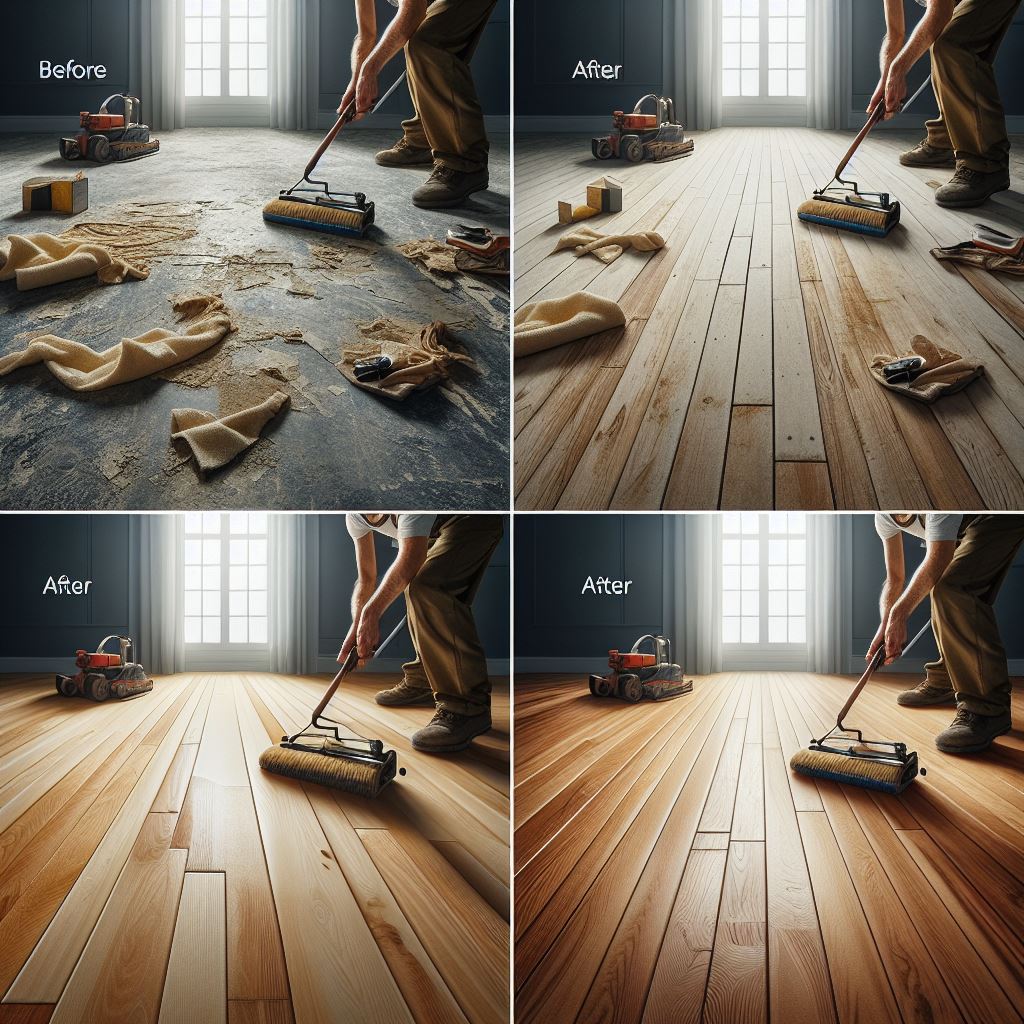When considering a new flooring option, many homeowners find themselves asking, "how much is engineered hardwood flooring?" Engineered hardwood flooring has become a popular choice due to its durability, aesthetic appeal, and cost-effectiveness. Unlike traditional hardwood, engineered hardwood is constructed with multiple layers, which not only makes it more stable but also more affordable.
One of the key attractions of engineered hardwood flooring is its ability to mimic the look of natural hardwood while offering additional benefits. Each plank consists of a real wood veneer on top, supported by layers of plywood or high-density fiberboard underneath. This construction method allows for greater resistance to moisture and temperature fluctuations, making it suitable for various environments.
The cost of engineered hardwood flooring can vary significantly depending on several factors. These include the type of wood used for the veneer, the thickness of the plank, the quality of the core layers, and the overall finish. On average, you can expect to pay between $4 to $12 per square foot for quality engineered hardwood flooring. However, it is essential to consider additional costs such as installation, underlayment, and any required floor preparation.
At Paradise Spaces, we understand that choosing the right flooring is a significant investment. To help you make the best decision, we offer personalized consultations and competitive pricing. Request a free estimate or email us at sales@paradise-spaces.com to get started on your flooring project today!
Factors Influencing Flooring Prices

When it comes to understanding how much is engineered hardwood flooring, it is crucial to consider the various factors that can influence its price. Here are some of the key elements that can affect the overall cost of your flooring project:
- Type of Wood Veneer: The species of wood used for the top veneer layer can significantly impact the price. Exotic woods like Brazilian cherry or mahogany tend to be more expensive compared to domestic options like oak or maple.
- Plank Thickness: Thicker planks not only provide better stability and durability but also come at a higher cost. Standard thicknesses range from 3/8 inch to 3/4 inch.
- Core Construction: The quality and type of core layers (plywood or high-density fiberboard) can affect the flooring's stability and price. Higher-quality cores generally result in a more expensive product.
- Finish and Coating: Engineered hardwood flooring comes with various finishes, including matte, semi-gloss, and high-gloss. Special coatings like UV protection, scratch resistance, and waterproofing can add to the cost.
- Brand and Warranty: Established brands often come with a premium price tag, but they also provide better warranties, ensuring long-term peace of mind.
- Installation Costs: The complexity of the installation process, labor costs in your area, and any additional materials required (like underlayment or adhesives) can add to the overall expense.
Understanding these factors can help you make a more informed decision when selecting engineered hardwood flooring. By weighing the pros and cons of each element, you can choose a flooring option that fits both your budget and your aesthetic preferences.
Average Cost of Engineered Hardwood Flooring

When considering how much is engineered hardwood flooring, it's essential to have an idea of the average costs involved. While prices can vary based on the factors mentioned earlier, a general range can provide a helpful starting point for budgeting your project.
On average, the cost of engineered hardwood flooring ranges from $4 to $10 per square foot for materials alone. This price range reflects the quality of the wood veneer, core construction, finish, and other features. Here’s a breakdown of what you might expect within this range:
- Budget-Friendly Options ($4-$6 per square foot): These typically include domestic wood species, thinner planks, and basic finishes. While they are more affordable, they may not offer the same level of durability or aesthetic appeal as higher-end options.
- Mid-Range Options ($6-$8 per square foot): This category often features a balance between quality and cost. You can find a variety of wood species, moderately thick planks, and a good selection of finishes. These options are ideal for homeowners seeking a mix of affordability and quality.
- Premium Options ($8-$10+ per square foot): Premium engineered hardwood flooring includes exotic wood species, thicker planks, and advanced finishes with additional protective coatings. These options are designed for maximum durability and visual appeal.
In addition to material costs, don't forget to factor in installation expenses, which can range from $3 to $8 per square foot depending on the complexity of the job and local labor rates. This brings the total cost to approximately $7 to $18 per square foot for both materials and installation.
Having a clear understanding of these average costs will help you set a realistic budget and ensure you choose the best engineered hardwood flooring for your needs and preferences.
Comparing Engineered Hardwood and Solid Hardwood

When deciding between engineered hardwood and solid hardwood, it's important to understand the key differences and benefits each type offers. Both options have their unique attributes, making them suitable for various applications and preferences.
Construction: The primary difference lies in their construction. Solid hardwood is made from a single piece of natural wood, offering a traditional and authentic wood feel. In contrast, engineered hardwood consists of multiple layers: a top veneer layer of real wood and several layers of plywood or high-density fiberboard beneath. This layered construction gives engineered hardwood superior stability and resistance to moisture and temperature changes.
Durability: While both types are durable, engineered hardwood is generally more resistant to warping and cupping, making it a better choice for areas with fluctuating humidity levels or where moisture might be a concern, such as basements or kitchens. Solid hardwood, however, can be sanded and refinished multiple times, which can extend its lifespan considerably.
Installation: Engineered hardwood often offers more flexibility in installation methods. It can be nailed, glued, or even floated over various subfloors, including concrete. Solid hardwood typically requires nailing or stapling to a wooden subfloor, which can limit its installation options.
Cost: Generally, engineered hardwood tends to be more cost-effective than solid hardwood, particularly when considering the total cost of materials and installation. However, prices can overlap depending on the wood species, finish, and other factors.
Aesthetic Appeal: Both types of hardwood offer a beautiful, natural look, but solid hardwood might appeal more to purists who prefer an entirely natural wood floor. Engineered hardwood, with its high-quality veneer, can closely mimic the appearance of solid wood while providing additional practical benefits.
Choosing between engineered hardwood and solid hardwood ultimately depends on your specific needs, preferences, and the conditions of the area where it will be installed. By weighing the pros and cons of each option, you can make an informed decision that best suits your home.
Installation Costs and Considerations

Understanding installation costs and considerations is essential when planning for engineered hardwood flooring. The cost of installation can vary widely based on several factors. Here's what you need to know to budget effectively and ensure a smooth installation process.
Labor Costs: Labor is a significant component of the total installation cost. Professional installation typically ranges from $3 to $8 per square foot, depending on the complexity of the job and the experience of the installer. More intricate patterns or designs can increase labor costs.
Subfloor Preparation: The condition of your subfloor plays a crucial role in the installation process. If the subfloor requires extensive preparation, such as leveling or repairing, this can add to the overall cost. A well-prepared subfloor ensures a more stable and long-lasting floor.
Installation Method: The chosen installation method also impacts cost. Nail-down and glue-down methods generally cost more due to the additional time and materials required. Floating floor installations tend to be less expensive and quicker, but they may not be suitable for all subfloor types.
Materials and Supplies: Don't forget to factor in the cost of additional materials and supplies like underlayment, adhesives, nails, and finishing products. Underlayment is particularly important for cushioning and sound insulation, especially in multi-story buildings.
Geographic Location: Your location can also influence installation costs. In urban areas or regions with a higher cost of living, labor rates might be higher compared to rural areas.
DIY vs. Professional Installation: While opting for a DIY installation can save on labor costs, it's important to have the necessary skills and tools. Mistakes during installation can lead to additional expenses in repairs and potentially void any manufacturer's warranties.
By considering these factors, you can better estimate the total cost of installing engineered hardwood flooring and avoid unexpected expenses. Proper planning and budgeting ensure that your investment in new flooring delivers both aesthetic appeal and lasting durability.
Tips for Getting the Best Deal
Securing the best deal on engineered hardwood flooring requires a combination of research, timing, and negotiation. Here are some practical tips to help you get the most value for your money.
1. Shop Around: Don’t settle for the first quote you receive. Visit multiple retailers, both in-store and online, to compare prices. This will give you a better understanding of the average market rate and help you identify the best deals.
2. Look for Sales and Promotions: Keep an eye out for seasonal sales, clearance events, and special promotions. Retailers often offer significant discounts during holiday sales or end-of-season clearances. Signing up for newsletters can also provide early access to exclusive deals.
3. Buy in Bulk: If your project requires a large quantity of flooring, buying in bulk can often result in a lower price per square foot. Many suppliers offer bulk discounts, so it’s worth inquiring about these options.
4. Negotiate: Don’t be afraid to negotiate the price, especially if you’re buying a substantial amount or if the flooring has minor imperfections. Retailers are often willing to offer discounts to close a sale.
5. Consider Remnant or Overstock: Check for remnant or overstock options. These are often sold at a significant discount and can be a great way to save money if you don't need a large quantity of flooring.
6. Evaluate the Total Cost: Be sure to consider the total cost of your flooring, including installation, underlayment, and any additional materials. Sometimes a higher-priced product with included services can be more cost-effective than a lower-priced option with extra charges.
7. Check Reviews and Ratings: Before making a purchase, read reviews and ratings from other customers. This will help you gauge the quality of the product and the reliability of the retailer.
By following these tips, you can maximize your investment and enjoy beautiful, high-quality engineered hardwood flooring without breaking the bank.
Request a free estimate or email us at sales@paradise-spaces.com to learn more about our competitive pricing and exceptional service.
